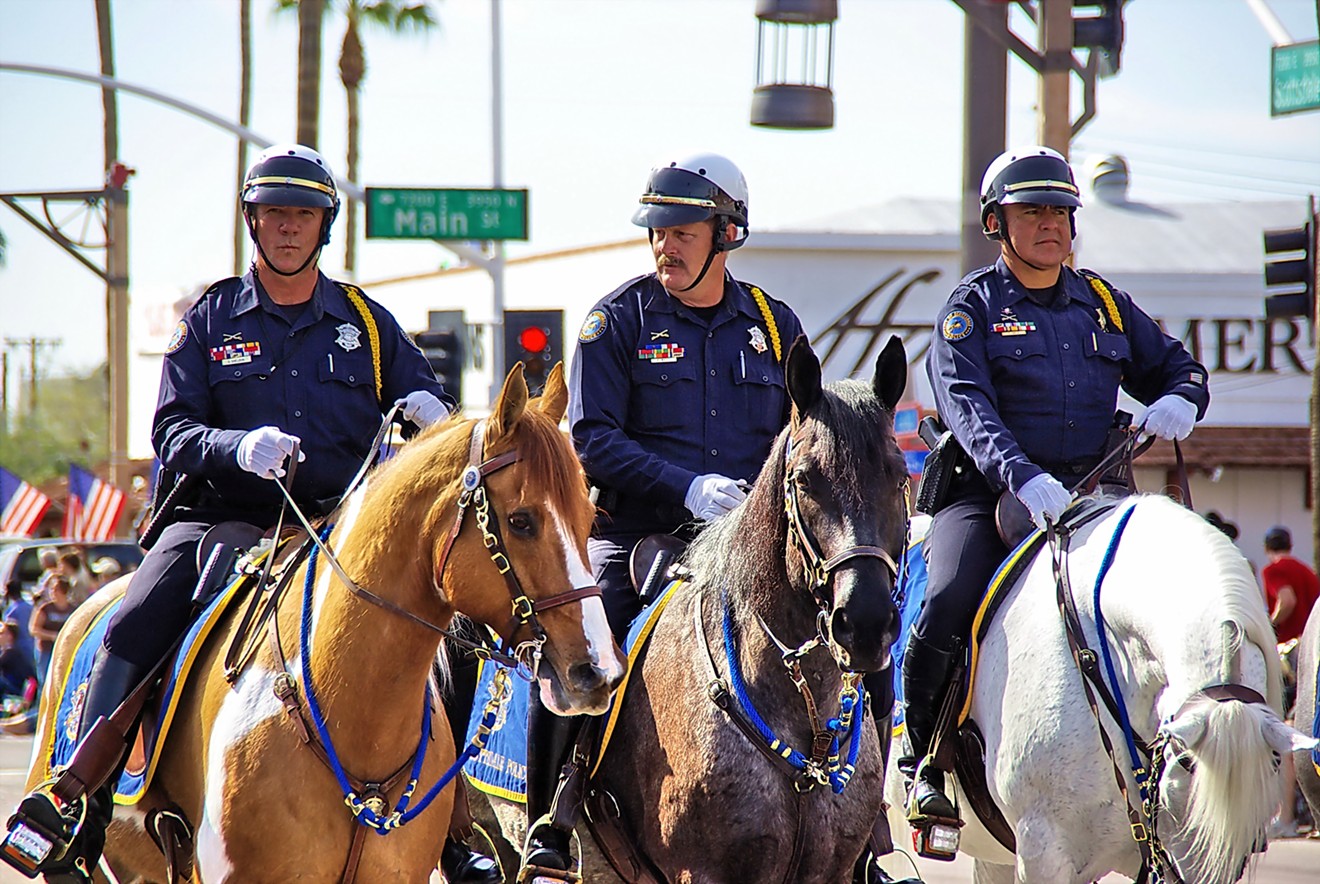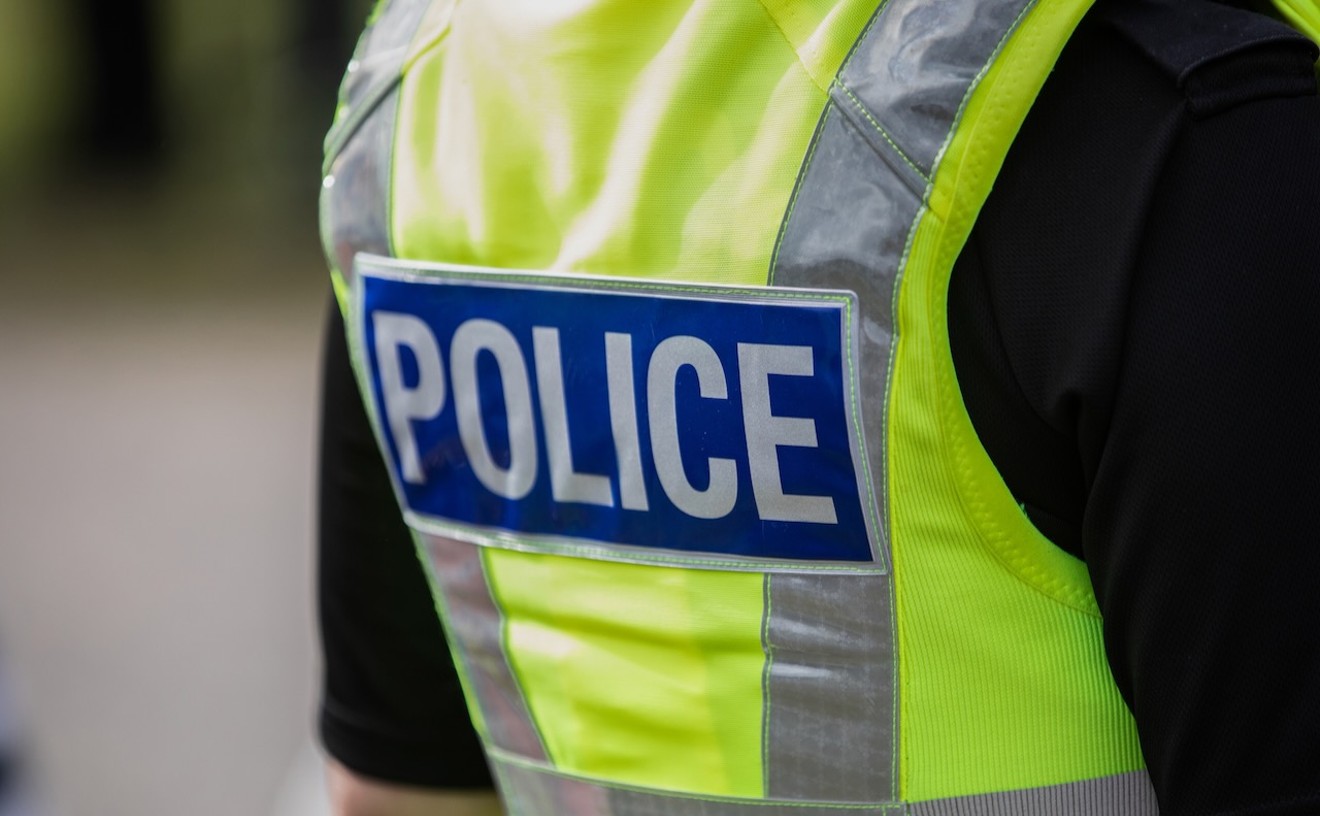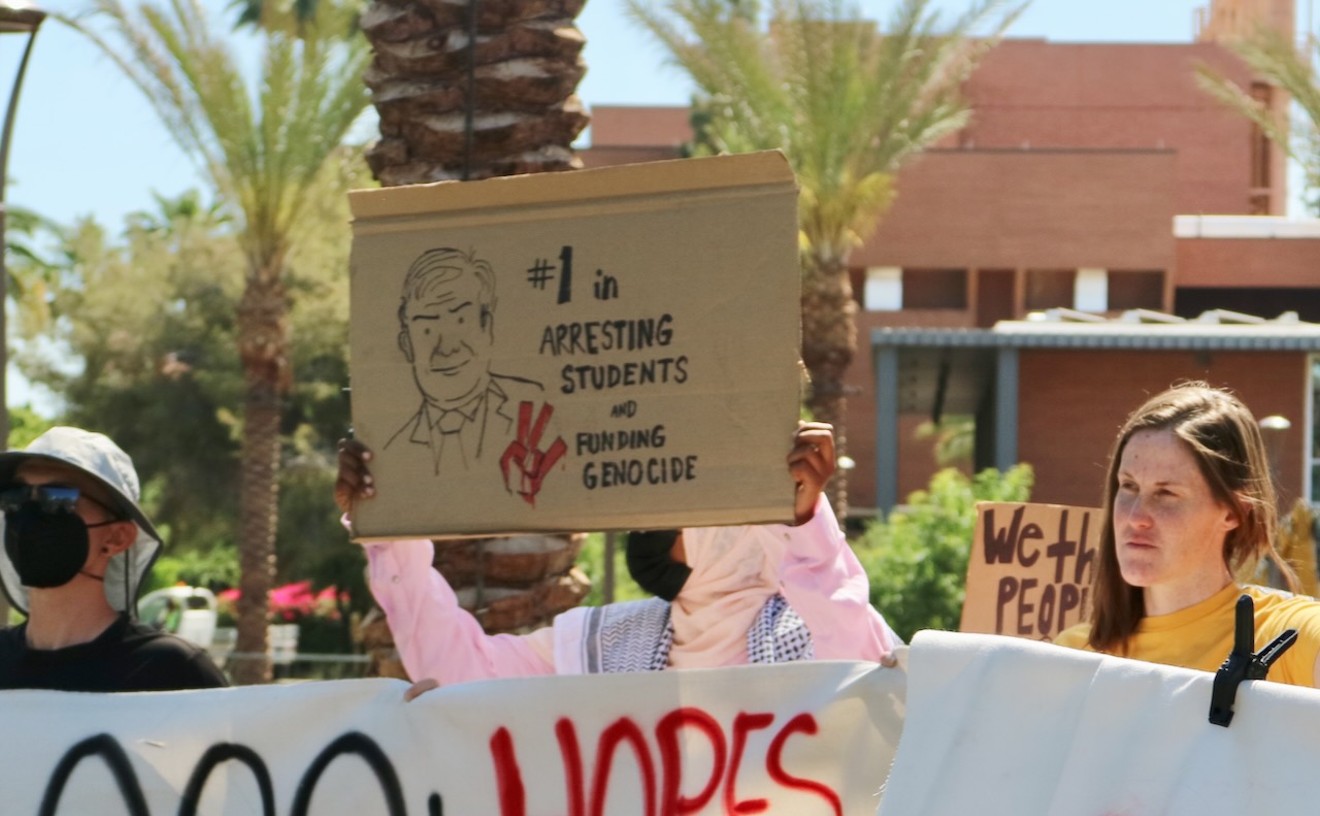Last week, Phoenix New Times reported that the Scottsdale Police Department classified 24.8 percent of rapes as unfounded, defined by the FBI as false or baseless, from 2014 to 2017 (the national average is 7 percent). Now, a spokesperson for Scottsdale police claims that number was so high only because the department was classifying rapes as "unfounded" when they should have been labeled "inactive."
"After carefully reviewing the 2017 and 2018 sexual assaults, we determined some cases should have been classified as Inactive, and the truly Unfounded cases proved to have occurred in another jurisdiction (and our investigations were forwarded to the appropriate law enforcement agency) or the investigator determined that the reported sexual assault did not occur (examples would include physical evidence, video evidence, etc. proving that no crime occurred)," said Sergeant Ben Hoster, Scottsdale police spokesman, in a statement emailed to New Times.
Yet, after a 2016 BuzzFeed News investigation found SPD had one of the highest rates of unfounded rape in the country, assistant chief Scott Popp told a local news outlet that number included cases that had been categorized incorrectly and that "some of the cases labeled unfounded should have been marked as inactive."
In the article, published in September 2016, Popp said they had a high number of unfounded rapes because "It was a period of time where we cleared them with the unfounded crime reporting [category] incorrectly."
"We took it upon ourselves to do a review of all of our sexual assault cases," Popp said in 2016. That's when, Popp claimed, they noticed that rapes were being labeled unfounded when they apparently should have been marked as "inactive."
Popp said they had addressed the issue in 2016, yet Hoster, a spokesperson for the Scottsdale Police Department now says that in 2017 and 2018, 23 cases that were labeled unfounded "should have been marked as inactive."
Hoster did not immediately respond when asked why, if Popp said the misclassification issue had been addressed in 2016, the same thing allegedly occurred in 2017 and 2018. However, he said that the department is working on addressing this and promised to clarify the situation at a later date. He also said he would pass along New Times' request to speak with the chief or assistant chief about the issue.
A 2015 policy manual from the Mesa Police Department says cases may be declared "inactive" when: "The investigation has reached a point of impasse; All known leads have been exhausted; The information given is insufficient to identify a suspect; There is an absence of solvability factors; The victim peacefully settled the matter but declines to identify the suspect and the suspect's location to the police."
The Scottsdale Police Department uses a similar definition for inactive cases. "It basically means we've investigated it and we don't have any more leads," Hoster said.
The data on unfounded rapes referenced in this story comes from the FBI. Police departments throughout the country submit crime data to the FBI as part of the Uniform Crime Report. "Inactive" is not a classification UCR recognizes, according to the Mesa policy manual.
SPD classifies crimes as unfounded when "a criminal act did not occur within the City of Scottsdale or the elements of a crime cannot be established." Hoster told New Times that of the 30 unfounded rape cases in 2017, six were unfounded because the incident occurred in another jurisdiction, 15 were "truly unfounded (Not false reports but the elements of sexual assault per statute were not met)," and nine should have been marked as inactive.
The Scottsdale Police Department did not explain why the number of unfounded rapes in 2014, 2015, and 2016 were so high; Hoster only provided a breakdown for 2017 and 2018. Hoster said 14 of 34 unfounded rapes in 2018 should have been labeled inactive instead.
Hoster said the statistics do not accurately reflect the department's commitment to sexual assault investigations. "Scottsdale is head and shoulders above other agencies in terms of investigation. We don't have a [rape kit] backlog. We investigate each case until it's complete. If you look at those cases individually you'll see that all of those cases are investigated until they're complete."
New Times has submitted a request under the state's public records law to review those cases individually.
FBI data from 2014 to 2017 shows that the department designated rapes as unfounded at a rate much higher than the national average, and higher than that of any other similarly sized city in Maricopa County. SPD also classifies more rapes as unfounded than any other crime.
High rates of unfounded rape often indicate there may be a problem with the way police officers are responding to rape victims and investigating rape, advocates say.
"These numbers are certainly troubling and disappointing," said Tasha Menaker, co-CEO of the Arizona Coalition to End Sexual and Domestic Violence. "With so many cases categorized or miscategorized as unfounded or inactive, victims are certainly not getting the justice they deserve."
[
{
"name": "Air - MediumRectangle - Inline Content - Mobile Display Size",
"component": "18478561",
"insertPoint": "2",
"requiredCountToDisplay": "2"
},{
"name": "Editor Picks",
"component": "16759093",
"insertPoint": "4",
"requiredCountToDisplay": "1"
},{
"name": "Inline Links",
"component": "17980324",
"insertPoint": "8th",
"startingPoint": 8,
"requiredCountToDisplay": "7",
"maxInsertions": 25
},{
"name": "Air - MediumRectangle - Combo - Inline Content",
"component": "16759092",
"insertPoint": "8th",
"startingPoint": 8,
"requiredCountToDisplay": "7",
"maxInsertions": 25
},{
"name": "Inline Links",
"component": "17980324",
"insertPoint": "8th",
"startingPoint": 12,
"requiredCountToDisplay": "11",
"maxInsertions": 24
},{
"name": "Air - Leaderboard Tower - Combo - Inline Content",
"component": "16759094",
"insertPoint": "8th",
"startingPoint": 12,
"requiredCountToDisplay": "11",
"maxInsertions": 24
}
]











